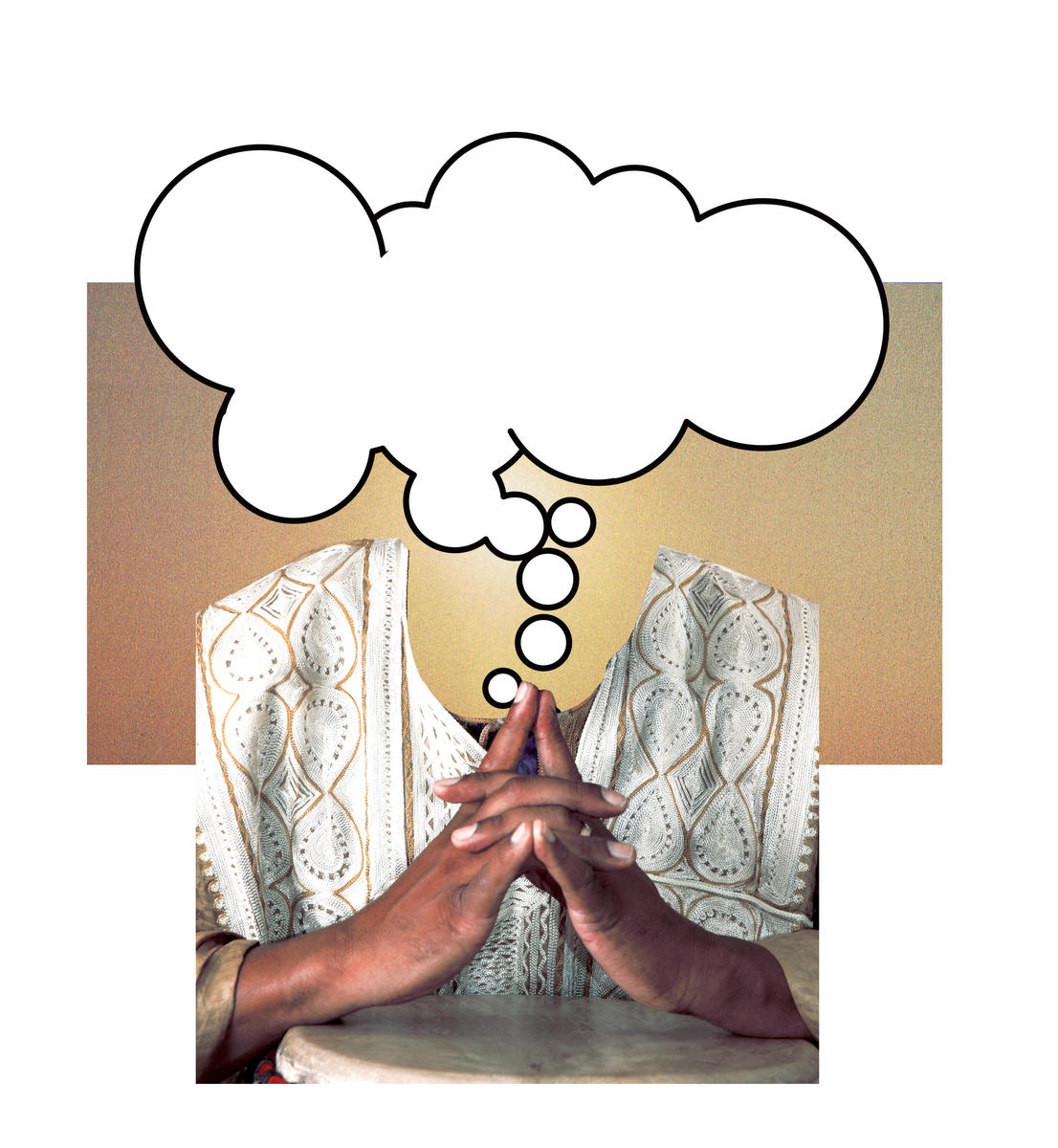
The Senegal of the Mind is especially lovely this time of year. Its capital is Dakar, the Paris of Africa, where the ancient Moorish civilization of black Africa speaks French to power. The Senegalese of the Mind are also very fond of Beirut (the Paris of the Middle East), as well as Buenos Aires (the Paris of South America) and Paris (the Paris of France).
The Senegal of the Mind was discovered by Tracy Chapman in the 1980s. Also present at the founding were Gil Scott-Heron, Jean-Michel Basquiat, the Joseph-Désiré Mobutu shirt and horn-rimmed glasses, the Kaunda suit, the Badu twist, Indonesian tie-dye, various Yoruba goddesses, the music of the anti-apartheid movement, Fela Kuti’s sweaty abs, and a guy called Enrique who makes hats in Brooklyn.
Zap Mama was not present at the founding, though she would become the mother of the nation in the late Nineties, by conquering it.
Marie Dualne, or Zap Mama, was born of a Belgian father and a Zairois mother. Her father was killed during the riots that led to independence. Her mother fled, with Marie in her stomach, to the Congo forest, where they were rescued by Pygmies. She was born in the forest without anesthetic, and she was named »«¿¿¿, which means “the Queen With Colliding Arrows and Upside Down Question Marks.” (In French, this translates as Marie Untoilette.)
Decades later, she made a pilgrimage back to Africa to meet the Pygmies, and they treated her specially because she could sing like them. Her Congolese homecoming was only the beginning of her Afropudlian idyll. In 1997, she had a baby she named Kesia, and she went to Mali. “A man in Mali told me that there are seven senses,” she said. “Everyone has five, some can use their sixth. But not everyone has the seventh. It is the power to heal with music, calm with color, to soothe the sick soul with harmony. He told me that I have this gift, and I know what I have to do with it… I’m looking for instruments that have vocal sounds, forgotten instruments like the guimbri.” She had embarked on a Pan-African search for some quality me-time, a quest that could only end in Senegal.
Marie Untoilette started to recruit revolutionaries for the attack on Fort Greene, Brooklyn, the heartland of the Senegal of the Mind. She worked with Michael Franti, Limp Bizkit, the Butthole Surfers, Rob Zombie, the Foo Fighters, Erykah Badu, and the Wizards of Ooze to make the soundtrack. Luckily, she had studied “polyphony in Asian, Arabic, and African contexts,” which came in handy during the fighting. One fine morning Marie and her shock troops (including a contingent from HEMP: Hair Empathy Messes Patriarchy) descended on Dekalb Avenue wielding vodoun essential oils and candomblé drumbeats, beating up people with perms. Some of the extremists pulled women out of their storefronts and gave them jojoba scalp rubbings. Afterward, negotiations with the long-haired pimp look of Fulton Mall were dreadlocked for months, until Marie went directly to the Taiwanese Mafia and made them pull all lye-based products from all shelves and replace them with shea butter, Rita Marley Pancake Mix, Wyclef Jeans, and Gorée Hand Cream.
“Now, my massage is that we need to go down to our roots!” she said, strumming her endangered instrument as the crowds cheered.
She declared independence in 2000 and was registered by the United Nations World Music Council.
Location: within 500 yards of any outlet that sells Putumayo products to black people in every major city in the world
Credit Rating: above 700
Border countries: Ali Farka Toure, Bahia, Jamaica, Toronto, Salsa, and Yassa rice
Maritime claims: all offshore territories in the world where black people look beautiful and are artisanal and musical
Terrain: generally low, rolling voices with riffs and instruments made of earthy products, set to a retro beat by a DJ who is very cool
Elevation extremes:
Lowest point: Michael Franti
Highest point: Salif Keita, Youssou N'dour
Irrigated land: ten million scalps, furrowed and oiled
Natural hazards: lowlands seasonally flooded by gentrifying white people
Main exports: Polyphonic a capella, jojoba oil, world music CDs, plantain facemasks